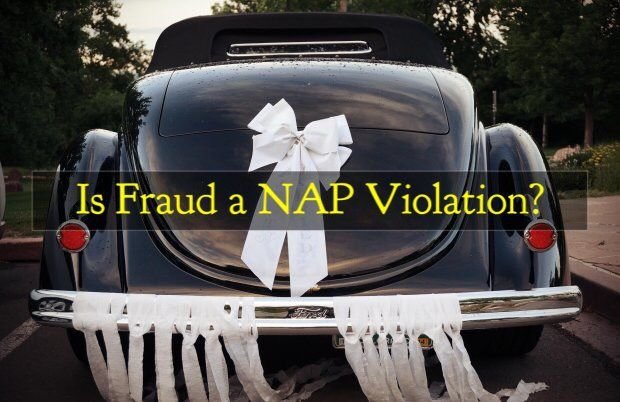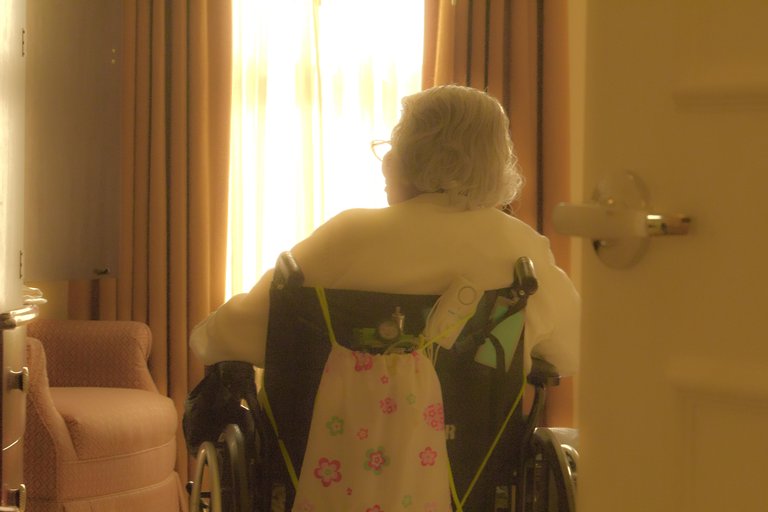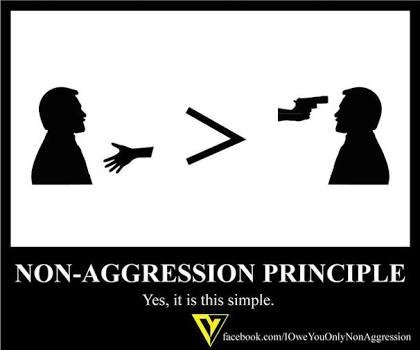For those uninitiated individuals who may not know what is meant by "the NAP," it very simply means "Non-Agression Principle." The NAP is based on the axiomatic, objective reality of self-ownership, and concludes that:
It is always illegitimate to initiate force/aggression against another individual.
(SOURCE.)
Fraud.
I want to talk about fraudulent behavior normally frowned upon by Voluntaryists/Market Anarchists.
For example, if I claim to be an insurance agent, and agree to insure a client, only to reveal later (after receiving several payments) that I will not be providing insurance coverage, and never was a real insurance agent in the first place, this is clearly fraud. However, can fraud, as such, be viewed as aggression, or is aggression limited to the physical realm?
Obviously, informed consent for the defrauded party in this case was not made available by me, the phony insurance agent. Market anarchism/voluntaryism hold that all human interactions should be consensual. Is this related to the NAP?
Marriage.
How is the above instance different in principle from two individuals entering into a voluntary contract to be monagamous, and in such context to share certain resources and utilize exclusive sexual access to one another, and one individual defaulting on this agreement secretly? While the other individual continues to believe the monagamy is being upheld ("I am insured"), the fraudulent party continues receiving resources from this person, financial and otherwise, perhaps, and continues to make use of sexual access to the defrauded individual, all the while breaking the contract. There is thus NO WAY the defrauded individual can be said to be offering informed consent in regard to the marriage agreement.
Conclusion (sort of).
If viewed in the strictest sense, ultimately, the individual choosing to trust the fraudulent individual must bear the consequences of his or her choice. The NAP really does not cover non-physical aggression or non-physical threats for individuals fully capable of conscious discretion. But wait, that's just it. Something about this remains incomplete.
No physical aggression has occurred in the case of the "insurance agent" and his client, and married individual and the unfaithful spouse. The defrauded individual was, in fact, free to refuse to enter into contract and say "no," the whole time. But what about other cases? Couldn't it be argued that sometimes the defrauded party is not capable of discretion?
I'll provide one final example.
Let's say I tell an old, almost senile woman here in Japan that her nephew overseas in America is starving. I ask her to please send money to "his bank account" to help him, giving her instead the information for my account. While this may, in the strictest sense not be viewed as physical "aggression," it is an aggression of sorts that takes advantage of another, weaker human being, and harms them.
How is this different than lying to an innocent child in order to coerce them into sexual behavior? Is not that aggression!? Of course it is.
Those saying libertarians should have nothing to say about the matters of marital infidelity and fraud fail to understand that the issue is not a petty, gossip-based, moralized one, but a very practical assessment of who would and would not be ideal to associate with, in voluntary interaction. Association with individuals with a history of fraudulent behavior carries inherent socioeconomic risks, and risks of NAP violation.
As far as the NAP is concerned, I do not think this issue is cut and dried, and believe it is up to individual property owners and their communities to decide how best to approach these situations.
~KafkA
Graham Smith is a Voluntaryist activist, creator, and peaceful parent residing in Niigata City, Japan. Graham runs the "Voluntary Japan" online initiative with a presence here on Steem, as well as Facebook and Twitter. (Hit me up so I can stop talking about myself in the third person!)








These are difficult questions. In a loosely related vein, I am particularly interested in how alimony can be justified. It would seem to violate the NAP if non-aggression extends to one's legally earned property.
As you say, these situations are not "cut and dried" and that is the case for much of what we experience as human beings. Most things fall outside of the black and white areas and into the uncomfortable gray. People often use the fact that there are gray areas as arguments against voluntaryism and the NAP while failing to acknowledge that there will always be gray areas regardless of what "system", or lack of one, is in place.
Exactly. And as I said to @gwiss above, I'd much rather work through the gray areas which may pop up as inherent to the NAP (not hurting people) than those that emerge as a result of the state's logic-less murdering chaos.
As a voluntaryist, how do you define marriage as something distinct from a couple choosing to cohabitate? In other words, who "validates" the marriage in a voluntaryist society? Obviously, the state grants a marriage licence today, but if we were to be so fortunate as to someday remove government from marriage, or even remove government from everything, what do you see a marriage "contract" looking like?
It isn't the license that matters. It is the mutual contract entered into by the contracting parties. In Oregon marriage licenses are not a prerequisite to having a valid marriage. Frankly, why should anyone have authority to grant permission to marry? Oregon recognizes that marriage is an agreement between the parties thereto that no outside entity has any authority over, and, although you can get a marriage license, you do not need one to have a marriage recognized by the State of Oregon.
When people vow to one another sexual monogamy, that is a contractual obligation, whether it is called a marriage or not. Violating agreements is at issue here, not whether the state or the church authorizes such an agreement.
That's an excellent question, and some people might not even want to have an "official" recognition. I'd still say it would be a form of fraud though, to "cheat," even in the absence of said official recognition, if both parties to the relationship had agreed on monogamy. How does one go about litigating these sort of things? I think communities and private defense and insurance agencies could handle it.
Thinking out loud... It seems impossible to hold the offending person accountable for fraud without an "official" recognition of marriage. In other words, the agreement on monogamy would be made official (and therefore be considered marriage) if they were to involve the community and invite accountability and justice from private defense and insurance.
Without voluntarily inviting that accountability, there can be no such thing as an agreement on monogamy. So perhaps marriage would be defined by whether or not a couple invites that accountability and the subsequent consequence for violating the agreement. If they have not invited the accountability then they are simply cohabitating, and neither couple can truly expect sexual fidelity.
Do you need an official recognition by the state of any other kind of agreement in order for fraud to be potential? Is there a State approval bureaucracy of mortgages or automobile sales?
No. Whether or not any other entity is even aware of agreements, fraud is potential to agreements. Secret agreements may not be enforceable in court, but fraud exists whether it is proved in court or not, and agreements do not depend on some outside authority to be able to be entered into.
Good points. To clarify, I agree that an outside authority is not needed to enter into an agreement. And yes fraud can still be committed even when an agreement is made in secret. The issue is not whether an agreement exists but whether justice can be administered if the agreement is violated.
In your examples, the state determines what qualifies as a legitimate and enforceable contract. And the state exists to enforce the contract if violated. The biggest problem to solve for voluntaryists is how to enforce such contracts and administer justice when the contract is violated. If it can only come from the private sector than it seems to me the couple in the marriage example must agree to submit themselves to accountability and consequences from the community. Until they do, I can't see how they are in fact "married."
I see this issue of how to enforce contracts as the primary reason that many libertarians believe government will always be necessary, although obviously a lot smaller.
Thanks for clarifying for me! I can now better appreciate your earlier comment, regarding enforcement, and why you referenced the state.
I am not particularly schooled regarding voluntarism, but several mechanisms suggest themselves as equal to the task of enforcement, for example, juries. Perhaps the most important democratic mechanism, at least in America, is the jury of peers, who are empowered to decide matters at law. While most people think Judges have that job, it is rather the job of the Judge to be a specialist in the letter of the law, and to direct the technical and administrative matters relevant to a given case, so that juries, which are not expected to have legal backgrounds, can decide the merits of the case.
Just as juries in the USA are drawn from pools of eligible voters, and compensated (a little bit, anyway) for their time, it seems to me that in a stateless society eligible persons could apply to serve on juries. I have read exegeses on how courts might be entirely privately owned affairs in Libertarian states.
As it is hard to actually find examples in the USA of private prisons, for example, that aren't hopelessly intertwined with the state, and corruption, it is difficult to consider how such entities might remain uninfluenceable by those with matters before courts. Of course, courts aren't beyond influence now, so it may be that courts, particularly criminal courts, might ever be beyond influence.
Arbitration is also a mechanism potential to resolving contractual disputes, that presently is at least largely conducted by private parties. In both these examples the mechanism for resolving disputes could easily be specified in the contract itself, rather than imposed afterwards by some authoritative body, and even include buggy whips at 50 paces, if so desired by the parties thereto.
Excellent points, man. I think I get what you are saying now.
There can still be an agreement and a breach, it would just potentially be harder to receive recompense for being defrauded in regard to litigation services. It might even be next to impossible. I agree with you there. However, there can still be a valid agreement and contract (verbal or otherwise) even in the absence of any and all third parties.
KafkA,
The non-aggression principle is good from the standpoint of theory, but whenever I try to to really apply it to the world, I always end up in these rabbit holes like you described, trying to figure out what exactly constitutes aggression.
Is it aggression to defend yourself? How about a pre-emptive strike in order to prevent anticipated aggression? Exactly what level of suspicion qualifies anticipated actions as aggression and therefore justifies a pre-emptive strike? Trying to apply the aggression meter to everything just becomes exhausting, I suspect because the world is way too nuanced and complicated to distill down to a binary choice of aggression or not. It's like trying to divide the world into black and white when in fact it is rarely either.
Trying to apply non-aggression in a strict way ends up in ludicrous situations, like the Antioch college sexual activity policy that requires a verbal request and verbal assent for each and every move during a sexual encounter. Essentially, Antioch has followed that rabbit hole down so far that they have reached a level of purity that is completely impractical, and thus it gives the policy wonks a thrill but is otherwise ignored.
What if aggression or the lack thereof is not actually the filter that makes the world function properly? I tend to see the world more in cycles rather than linear scales, in the sense that my actions tend to produce consequences whose effects come back around to affect me. I create the world that I get. What is important in this world is not the yes/no of whether something is aggressive or not, but rather properly matching the level of aggression I show to others with how close a relationship I want to have with that person.
Aggression isn't "bad" per se -- it just produces a predictable echo of aggression back from others. Aggression in low doses widens the space between you and others, but in high doses tends to draw you together into a fight. So aggression is a tool -- use it properly and life is better. Use it poorly or in a ham-fisted way and life is worse. There are plenty of scenarios where a little bit of aggression is like a good fence -- it makes society better.
So for me, it is not as important to try to adhere to a non-aggressive life. It is much more important for me to understand how my actions are perceived by others and choose the actions that reflect back to me the world that I want. So if I want a world where I am separated from others and no one is on my team, then I am aggressive towards others and lie and cheat. Or if that's not what I want, then don't. To my way of thinking, most of life is just learning that there are no short cuts -- we always get exactly what we create. That's the bitch of living in a world ruled by causality ;-)
Funny -- I don't put much stock in religion, but the golden rule sure hit it right on the head.
I think, yes, you are right. If one tries to apply any "system" absent of "common sense" the system will quickly degrade and devolve into absurdity.
I would have to say though, that the few gray areas abiding by non-aggression might theoretically create, are much preferable to the chaos, bloodshed, pillage, murder and theft necessitated by the system of social retardation currently referred to as "government." For me this is a no-brainer.
Love this. Now you've hit the nail on the head.
Well said!
An absolutely excellent article. I agree with your conclusion about marriage and feel the same way with regards to infidelity being tantamount to fraud. You do bring up an excellent point regarding fraud, though, and I think it's worth while exploring whether or not fraud does, in fact, constitute aggression.
The way I see it, fraud constitutes an act of trespass by deceit. Since the defrauded party is unable to render meaningful (informed) consent, the defrauding party is utilizing resources that he or she does not have a legitimate claim to access. Broadly speaking, this is an act of trespass, and trespass does qualify as aggression.
You can argue what constitutes meaningful consent, and I think there are cases in which the defrauded party has less of a claim to being trespassed than others (such as in the case of known serial adulterers), but there at least exist examples in which this is the case.
Excellent, thought-provoking points man. Thanks for this.
I, having experienced fraud in the context of monogamy, as well as many other mechanisms as well, heartily approve of your broaching this subject.
Fraud, whether for financial gain, or to obtain other benefits, generates those benefits absent the agreed upon compensation for those benefits. Since the money in a financial transaction can be equated to hours of labor, extracting that money without providing the agreed upon compensation is equivalent to enslaving the defrauded party. Fraud in a marriage achieves the same enslavement, only the labor isn't first translated into money, for the most part, but rather remains in it's original form, such as fealty, devotion, mutual division of marital burdens, etc..
Frankly, I see marital fraud as far worse than financial fraud, as personally I care more about people than money. I am not alone in that perception, as there are far more adverse impacts on people due to marital fraud than financial, and this can be measured. The numbers of people who suffer suicidal ideation and lesser emotional and mental trauma is vastly greater due to marital fraud than financial.
If this logical extension of fraud to enslavement isn't accepted by voluntarists, then clearly there are simply other things besides aggression that violate individual sovereignty, and fraud then is one of those things.
Is theft aggression? Fraud is just a form of theft that depends on duplicity. How about lying? Unless these things are labeled aggression, the voluntarist concept is far short of complete.
Very interesting read, never thought of it like that, thanks for opening my eyes😊 take good care
Nice post.
Nice post. Really excellent.
Really excellent keep it up......
Aggression is not in itself a violation. Without getting into the dictionary, I think the "NAP" refers to something akin to egging another on, or taunting them with the goal of entering into a spat or conflict. Merely violating an agreement, even knowingly and willfully, is not necessarily an agression imho.
NAP stands for "Non-Agression Principle."
I think if theft is considered a violation of the NAP and if fraud can be equated with theft, then everything is simple. Fraud is definitely a violation of the NAP.
I don't think we have to put infidelity into any sort of box or label it as agression or fraud. In a free society, people can freely enter into marriage/cohabitation contracts and can establish basic rules or even write actual contracts. In an arrangement where my mate and I "go steady", we have agreed to be sexually exclusive. If I cheat, that's breach of contract.
I can see how many people would feel it natural to have such contracts and enforce them, while for others that may be a thing that is not as big of a deal as for others and they would prefer to throw a few insults and walk away.
When it comes to misrepresentation of facts to extract monetary gain, that's fraud.
Private arbitration can easily handle both issues.
I addressed how infidelity sometimes results in monetary gain for one party through a misrepresentation of facts above.
I do agree with you, though, that not every couple will want to be bound by the same rules (or perhaps any at all).
Sorry, I separated the two issues for clarity, but again, breach of contract is breach of contract. I do consider someone misrepresenting facts to get married and extract monetary gain to be fraud. But, I do believe that the practical will be more important than the philosophical in an actual free society.
Free individuals will be able to engage in all sorts of contracts, some of which other free individuals may find abhorrent. Also, a free society will be a very diffuse society, so I can easily imagine some groups tolerating certain kinds of fraud.
Agree 100%
thank you for sharing this @kafkanarchy84